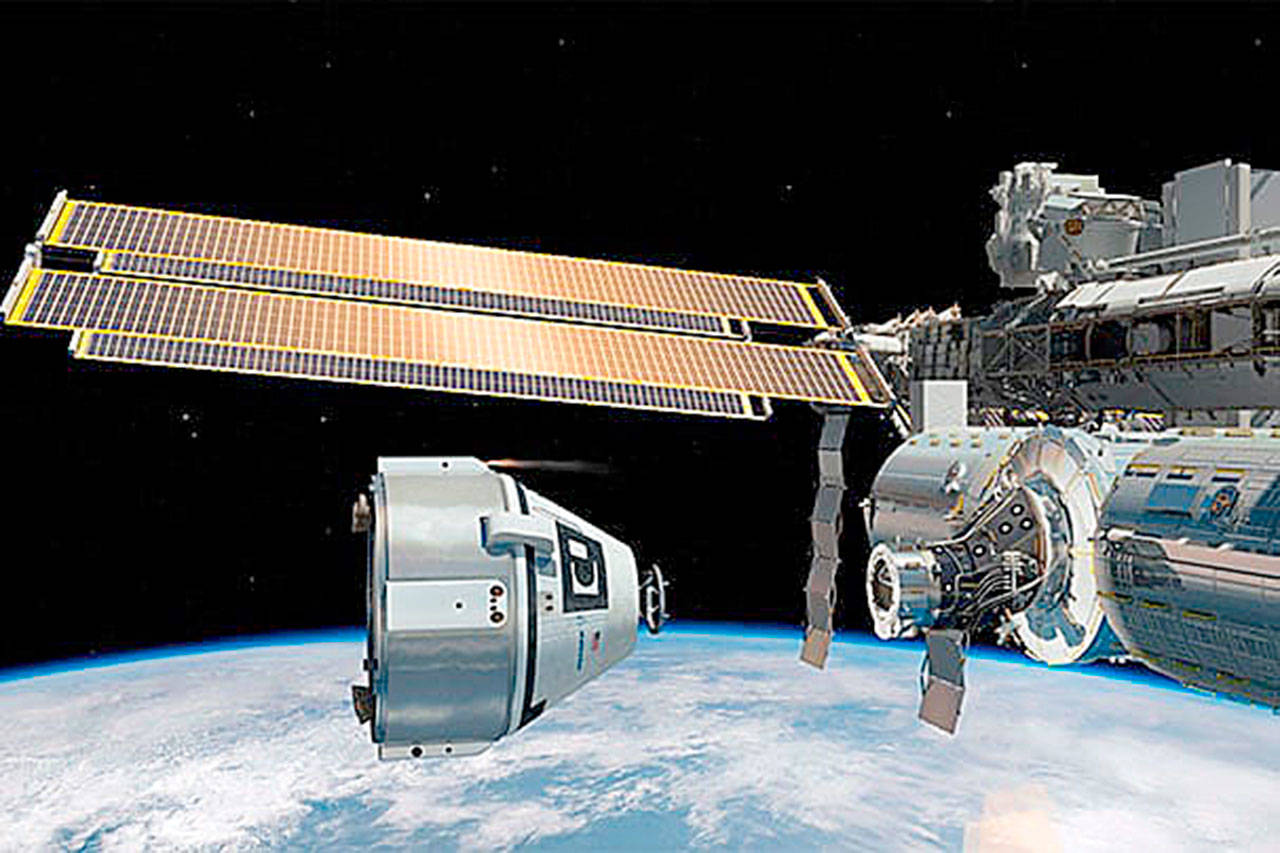By Christian Davenport
The Washington Post
NASA’s bold experiment to rely on contractors to provide a taxi service for its astronauts to the International Space Station is running into troubles that could delay the first flights and leave the space agency without a way to get its astronauts to the orbiting laboratory.
In prepared testimony submitted to a congressional hearing on the status of the program, the Government Accountability Office said that ongoing “delays and uncertain final certification dates raise questions about whether the United States will have uninterrupted access to the (space station) after 2019.”
If Boeing and SpaceX, the companies NASA has hired to fly its astronauts to space, can’t meet NASA’s rigorous requirements for human spaceflight by late next year, the space agency would have to continue to rely on the Russians, who charge more than $80 million a seat to launch Americans to orbit.
Failing that, NASA would face the ignominious prospect that the United States would not be able to access the space station, on which it has spent billions of dollars to build and maintain.
“We are here today looking at not one, but two companies that are behind schedule, may not meet safety and reliability requirements and could even slip into cost overruns,” said Brian Babin, R-Texas, the chairman of the House Space subcommittee.
He added that the “situation gets even worse when we look at safety and reliability concerns surrounding these two new systems.” As a result, NASA may have to seek additional funding or accept greater risk. “Neither of those options is viable,” he said.
NASA has been unable to fly humans to the space station since the shuttle was retired in 2011. Since then, the space agency has awarded contracts worth up to $6.8 billion in total to Boeing and SpaceX to develop spacecraft capable of flying humans to and from the station, which orbits the Earth at an altitude of about 250 miles.
The reliance on private-sector companies to perform a function that had traditionally been purely the government’s domain was seen as a bold bet, one that would free NASA up to pursue more ambitious deep space missions.
While Boeing has a long heritage in space, dating to the early days of the Space Age, and SpaceX has been supplying the station with cargo and supplies for years, both companies are struggling with deadlines and safety issues in the so-called “commercial crew program.”
Before they fly humans, Boeing and SpaceX must overcome complex technical problems with their spacecraft, the GAO said. Boeing has an issue with its abort system that may cause the spacecraft to “tumble,” posing “a threat to the crew’s safety.” Boeing is also addressing a concern that as the spacecraft re-enters the Earth’s atmosphere the heat shield could disconnect “and damage the parachute system,” the GAO found.
Before it allows SpaceX to fly, NASA must first determine whether it can safely fuel its rocket while the astronauts are on board — an issue that the both the GAO and the agency’s Aerospace Safety Advisory Panel said could be a safety risk. In 2016, SpaceX’s Falcon 9 rocket exploded into a massive fireball while it was being fueled ahead of an engine test.
Heading into 2018, the program is at a critical juncture, as NASA will have to sign off on some key decisions about whether it thinks Boeing and SpaceX’s spacecraft will be able to meet the agency’s rigorous safety standards.
In its annual report, NASA’s advisory panel recently wrote that “we expect to see several significant certification issues brought to culmination within the next year that will require NASA risk acceptance decisions at a very high level within the agency.”
The hearing comes as NASA recently announced that the schedule for SpaceX’s test flights have slipped. Its flight without astronauts, which had been scheduled for March, is now slated for August. And its flight with crew pushed back four months to December. Boeing plans an uncrewed flight in August, and one with astronauts in November — a month a before SpaceX.
Boeing and SpaceX have been working for years to get their spacecraft ready so that they meet NASA’s rigorous safety standards.
In its annual report, NASA’s Aerospace Safety Advisory Panel recently wrote that NASA “is addressing safety properly, but human space flight is inherently risky.” It noted that in particular, orbital debris can pose a significant danger. In space, even a small piece of debris, something the size of a screw, can wreak havoc when orbiting at more than 17,000 mph.
Even though the program is behind its original schedule, the report warned against prioritizing schedule over safety.
John Mulholland, Boeing program manager for commercial crew, said that the company is “making steady progress on achieving certification” from NASA for its Starliner spacecraft. He said the company exceeds “our requirements for crew safety.”
Hans Koenigsmann, SpaceX’s vice president for build and flight reliability, said SpaceX has “completed nearly all technical development,” as it works toward flying its first mission with astronauts by the end of the year.
William Gerstenmaier, NASA’s associate administrator for Humans Exploration and Operations said that both companies have made significant progress and their success will help lay “a foundation for a more affordable and sustainable future for human spaceflight.”
But he added that the “schedule for this activity has taken longer than originally envisioned.” And he said that the coming year “will be particularly challenging for our team as some of the most difficult milestones are just ahead.”
Talk to us
> Give us your news tips.
> Send us a letter to the editor.
> More Herald contact information.

























